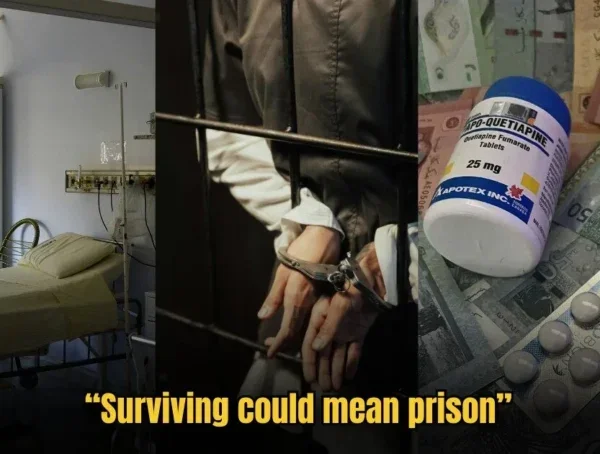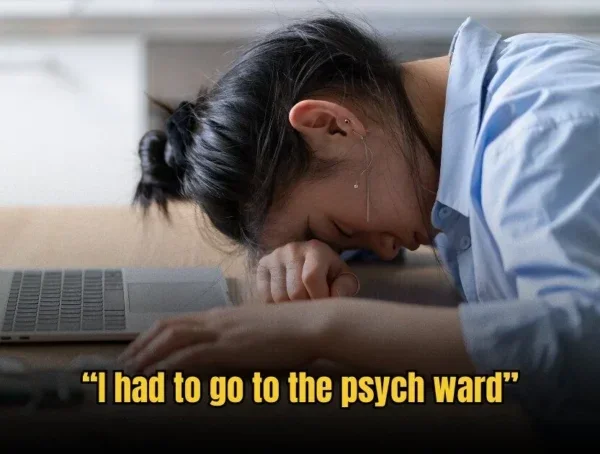Disclaimer: In Real Life is a platform for everyday people to share their experiences and voices. All articles are personal stories and do not necessarily echo In Real Life’s sentiments.
Dr Diane is a medical officer in the paediatrics department of a government hospital. She has been struggling with completing her tasks at work. She would often get into trouble and that would cause her to think negatively of herself.
Despite attempting to get medical help before, she had only recently felt like her struggles could now be explained and properly addressed as she gets diagnosed with ADHD.
This is her story!
I Was Feeling Different From Others
I was told directly by a superior that I was “surprisingly slow” during one of my ward rounds and indirectly during department meetings numerous times while other colleagues smirked at the remarks made.
It was extremely hurtful as I knew that I was not a stupid and lazy person but no matter how much I tried with many ways of coping with the workload, I just COULD NOT BE BETTER.
I carried this shame and feeling of failure for many years.

Source: pexels. Com
“Sooner or later, I developed clinical depression. I felt unworthy of living, lack of appetite thus losing weight (from a normal BMI to underweight), had no interest in previously enjoyable activities (jogging, travelling, exploring new places/eateries, swimming) and lost passion to pursue further in Paediatrics (which was previously a dream of mine). Despite that, I never hurt myself or had suicidal ideation or attempts.”
Some Struggles I Faced
Throughout my years in the medical line, I found that;
1. My concentration and energy levels were inconsistent.

Source: pexels. Com
I frequently had energy dip after starting on tasks that I felt were repetitive and deemed as trivial matters (such as filling up forms). So, I would usually take a longer time to complete these types of work. I’d get easily distracted and it would require a lot of energy for me to just focus on doing this one thing.
2. I had poor organisation skills and thoughts.
I struggled to prioritise tasks based on their urgency. Then, I also had the issue of losing or misplacing items that I needed for work. These included my handphone, numerous pens and pocket-sized calculators. Almost daily, I would need my colleagues (doctors, nurses and ward administrative clerks) to help me in locating my own phone! There was once when I’d even lost a patient’s x-ray film…
3. I prioritised perfectionism over completing my work.

Source: pexels. Com
Despite all the struggles I faced in (actually) finishing my work, I realise I try my best to do everything as perfectly as I can. This obviously causes me to spend a longer time to complete any work.
4. I had time-blindness

Source: pexels. Com
Just as the name would suggest, I found it hard to keep track of time. I constantly overworked myself and was hyper-focused on certain tasks until I lost track of time. This was a problem, especially because I made no time for my own personal needs. I would skip meals, forget to have toilet breaks, and put some time aside for leisure or hobbies.
5. I procrastinate like nobody’s business!
I avoided tasks that required a lot of thought, such as preparing for a presentation (weekly clinical and medical education). If I could, I would initiate them at the very last minute and put myself in a very stressful situation when the deadline is near. I would sacrifice sleeping time (at times, I only slept 1-2 hours just to complete the tasks in time).
6. I was a poor team player
Due to the above issues, I took longer to complete tasks. For example, by the time I was done with a patient, my fellow colleagues would have completed their work on two to three patients. Many colleagues (doctors and nurses alike) had expressed frustration when working with me verbally and via whatsapp group chats. Some thought I had taken my time on purpose so that I had lesser work to do while the rest had to work harder to cover for me.
Seeking Professional Help, But Not Continuing With The Treatment
In 2019, during my second year as a Medical Officer, I sought a psychiatric evaluation from Psychiatrist A.
2 years later, I arranged another appointment with Psychiatrist B at another clinic as I had transferred to a different state.

Source: pexels. Com
They gave a few general advice that included making a job list at work, categorising them based on the urgency of the tasks and working up from there. I was told that it was okay to have unpredictable events that came up at work and we should adjust them accordingly. The doctor also added that he had to adjust his busy schedule to arrange an urgent appointment to review me in his clinic as an example to support that statement.
No diagnosis was made at the time, and no medications were prescribed.
When asked if I needed further follow-up, they said it was up to me. I left the place, still not clear about what my conditions were.
It felt like I poured my emotions and concerns only for them to disregard me. I recalled feeling worse about myself after the session.
Finally! Someone Who Would Listen…
On February of this year, I decided to seek help once again when the pressure was getting too much for me to handle.
This time, the doctor that I talked to about my problems showed empathy for my situation (as opposed to feeling sympathetic for me). I felt that she understood the distress I was in and genuinely wanted to help me get better.
She prescribed me antidepressants for a month first. It helped improve my mood, but the rest of the problems were still there.
That was when she did the adult ADHD screening with me. When the results came back, everything felt like it clicked. She would then prescribe me Ritalin, which I find to really help me focus better at work.
Why Wasn’t I Diagnosed Earlier?
ADHD is often associated with young hyperactive, naughty boys by most people and clinicians. Besides fidgeting, I do not have other features to suggest hyperactivity. I was always known as a quiet and relatively well-mannered child growing up.
I believe being a perfectionist may have masked the problems I faced at work.
Unfortunately, after many years of adapting and implementing compensatory methods, I finally could not cope with work due to its increased complexity.

Source: pexels. Com
What Can YOU Do If You Feel Like You Have ADHD?
It is always best to seek professional advice first.
Usually, people diagnosed with ADHD would have had some symptoms present since childhood. This is the main thing that any psychiatrist would ask if you brought this up to them.
It should be noted that being diagnosed is not the endgame for you. You should not have to blame your shortcomings on your diagnosis and leave it at that! Just like any illness, healing comes with changing your lifestyle too.
While I still struggle with my ADHD every now and then, I can manage it better now that I know what I am dealing with.
Do you know anyone with an interesting story to share? Drop us an email at ym.efillaerni@olleh and we may feature the story.
For more stories like this, read:
5 Things You Should Know About Adult Attention Deficit Hyperactivity Disorder (ADHD)
You might also like
More from Real Mental Health
“I Was Scared of Waking Up in Handcuffs,” shares Depressed M’sian on Repealed Law
In 2023, Malaysia repealed Section 309, a colonial-era law that made suicide attempts a crime. The change marked a shift …
‘Everyone Saw A Successful Student While I Was Crumbling,’ Shares 22 Year Old Student
This is a story of a 22 year old woman who shared her story as a Straight A’s student as …
5 Harmful Mental Health Myths Malaysians Still Believe
Let’s break down five of the most common myths Malaysians still believe, and why it’s time to let them go.


















